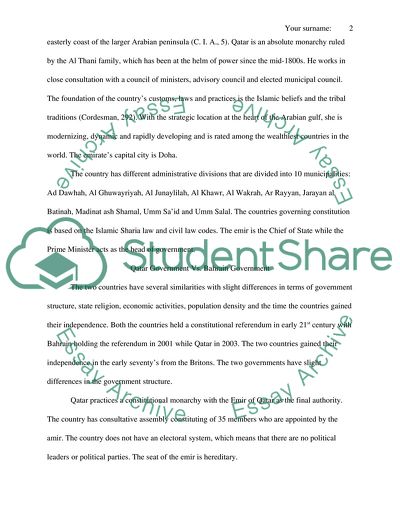Cite this document
(Democratic Concepts of Government in Qatar and Bahrain Research Paper, n.d.)
Democratic Concepts of Government in Qatar and Bahrain Research Paper. Retrieved from https://studentshare.org/politics/1739804-a-comparative-analysis-of-qatar-and-bahrain-pursuing-different-paths-in-democratic-concepts-of-government
Democratic Concepts of Government in Qatar and Bahrain Research Paper. Retrieved from https://studentshare.org/politics/1739804-a-comparative-analysis-of-qatar-and-bahrain-pursuing-different-paths-in-democratic-concepts-of-government
(Democratic Concepts of Government in Qatar and Bahrain Research Paper)
Democratic Concepts of Government in Qatar and Bahrain Research Paper. https://studentshare.org/politics/1739804-a-comparative-analysis-of-qatar-and-bahrain-pursuing-different-paths-in-democratic-concepts-of-government.
Democratic Concepts of Government in Qatar and Bahrain Research Paper. https://studentshare.org/politics/1739804-a-comparative-analysis-of-qatar-and-bahrain-pursuing-different-paths-in-democratic-concepts-of-government.
“Democratic Concepts of Government in Qatar and Bahrain Research Paper”, n.d. https://studentshare.org/politics/1739804-a-comparative-analysis-of-qatar-and-bahrain-pursuing-different-paths-in-democratic-concepts-of-government.


